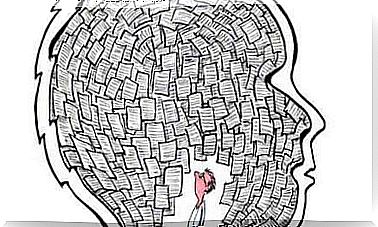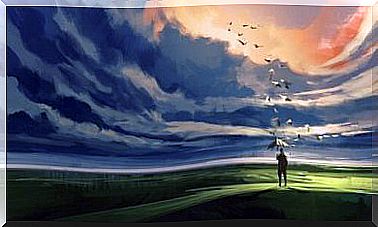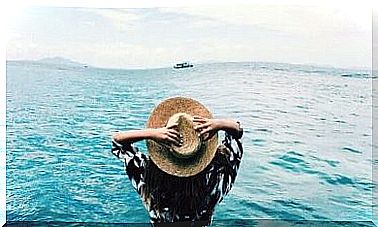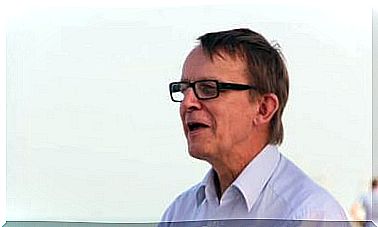Mihaly Csikszentmihalyi And The Psychology Of Optimal Experience
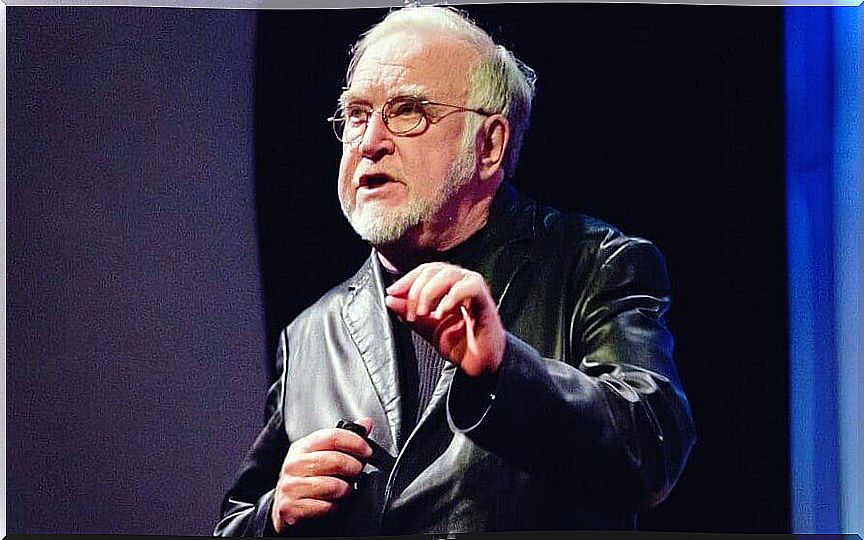
Mihaly Csikszentmihalyi is one of the most successful contemporary psychologists and his name enjoys a certain prestige, even if it is extremely difficult to pronounce. His specialty has received the name of “psychology of optimal experience” because of the author’s emphasis on moments of “flow” (literally, “flow”) or full realization.
This psychologist was born in a small Italian town which in the past was called Fiume and which today belongs to Croatia. She now bears the name Rijeka. His family was of Hungarian origin and they all had to live in very harsh conditions during World War II. This led Mihaly Csikszentmihalyi to emigrate to the United States in 1956, with only a few cents in his pockets.
In the Americas, Mihaly Csikszentmihalyi entered the Faculty of Psychology at the University of Chicago. In 1956, he obtained his doctorate in this discipline and, shortly after, published his work Flow , which has become a true benchmark for contemporary psychology. Currently, he is considered to be one of the most important figures in what is called “positive psychology”.

Mihaly Csikszentmihalyi and the concept of “flow”
What Mihaly Csikszentmihalyi suggests is that people are much happier when they manage to be in a state of “flow”. It happens when we perform an activity that completely captures our attention. For many, this is called “being in the zone”, meaning being totally absorbed in something and happy at the same time.
Mihaly Csikszentmihalyi described the state of “flow” as follows. It is about “ feeling completely involved in an activity for oneself. The ego no longer exists, nor does the perception of time. Every action, movement and thought inevitably follows from the previous one, like when playing jazz. Your whole being is involved, and you are using your skills to the extreme. “
It is therefore a state in which all attention is fixed on the task or activity that is taking place. A deep motivation is also present. We want to be there and do what we are doing. This results in harmony, balance and, at the same time, a feeling of happiness. This state of “flow” or “flux” is also called the optimal experience.
hr
Factors that lead to an optimal experience
Csikszentmihalyi has conducted research for over 12 years, during which he has appealed to thousands of people around the world. He found that regardless of age, nationality or the conditions in which people live their lives, almost all described optimal experiences in the same (or almost) way. All this made it possible to define certain factors present during these flow experiences. Here they are :
- There is a challenge that requires developing certain skills. If the challenge calls for demands that are proportional to the skills, the probability of the flow triggering is higher.
- Perspective and concentration. In the state of flux, attention is so important that the world and the ego vanish. Everything is focused on one point and a high degree of bonh concentration arises.
- Defined goals. Csikszentmihalyi discovered that the more you enjoy the moment, the clearer the goals. If these are blurry, attention will be scattered too.
- Direct and immediate feedback. People need short-term feedback that strengthens them. Feeling that they’ve hit the nail on the head increases the intensity of the experience.
- Sense of control. When the flow takes place, the person feels they have a high degree of control over what is happening. It is she who decides events and directs them as she wishes.
- The feeling of self-awareness is lost. In these types of states, the “me” seems to have completely disappeared. This has the effect of a kind of “liberation”.
- Change in the perception of time. Having one of these experiences creates the feeling that time is compressing. Three o’clock is like thirty seconds.

Mihaly Csikszentmihalyi’s theses have been applied to an infinite number of fields. Whether it is education, psychotherapy, business … We have all surely lived, at some point, one of these optimal experiences or flow. And we could perhaps live them more frequently by working attentively on what this author proposes.

